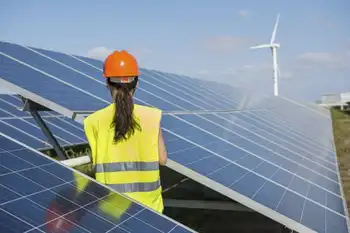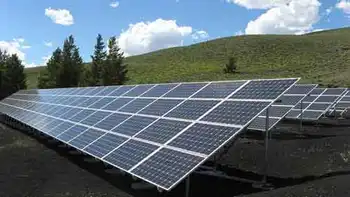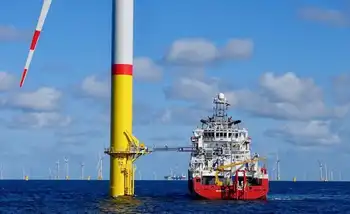Nuclear power can deliver Nigeria from power problems
By The Guardian
CSA Z462 Arc Flash Training - Electrical Safety Essentials
Our customized live online or in‑person group training can be delivered to your staff at your location.

- Live Online
- 6 hours Instructor-led
- Group Training Available
The Director General of Nigerian Nuclear Regulatory Authority, Mr. S. Elegba, who made this assertion in Lagos recently, ascribed it to the projection that the national electricity demand would be above 50,000 Mega Watts (50GigaWatts) by the year 2020.
Acknowledging the former president Olusegun Obasanjo's move towards nuclear power initiative, Elegba said that this was premised to the fact that it was the only viable option since national reserves of conventional sources were dwindling and the total installed capacity could hardly fulfill national energy needs and therefore could not sustain national industrial and economic development.
His words: "The sorry state of our electricity generation is summarized by the fact that Nigeria has never scaled the four GigaWatts barrier in actual power generation for a population of over 140 million. This was aptly and sadly recounted again by the Director General of the IAEA at the International Conference on Nuclear Power in France in 2005."
Elegba quoted the IAEA as saying: "Per capital electricity consumption in Nigeria is closer to 70 kilowatt-hour per annum."
This, he said, translated to an average availability of eight watts, which is less than a regular light bulb for each Nigerian citizen.
Nigeria's present electricity generation is mainly from hydro and gas/thermal. This energy mix is limited and not comparable to a country like South Africa, which generates 40,000MW of electricity for a population that is less than half of Nigeria's.
It could be recalled that President Obasanjo, in May 2006 established the Nigeria Atomic Energy Commission with the vision of operating at least one nuclear power plant within the next 10-15 years. Nigeria needs to generate at least 3,000MW or 3G by 2020.
To him, generating power from nuclear is not peculiar to Nigeria alone, noting that about 440 power reactor were currently operational in 30 countries, while 40 were making move. These reactors, according to Elegba supply about 16 per cent of the world's electricity.
"Today, 40 developing countries have expressed the desire to develop nuclear power for electricity generation including eight from Africa; namely, Nigeria, Egypt, Libya, Algeria, Morocco, Tunisia, Ghana and South Africa and 11 from Asia."
He stressed: "The country has invested the past 30 years in developing the physical and regulatory infrastructure for safe, peaceful, applications of nuclear energy. The power application of nuclear energy must now be developed to ensure adequate and reliable electricity supplies for industrialisation and national security."
Elegba, however, proffered a leeway from energy poverty. He said: "The way forward must necessarily be a hybrid of the two extremes, where the government regulates, the private sector generates, the government transmits while the private sector distribute. This is the 1010 model.
He gave the steps that would be required as regionalizing of grids, generation of electricity by both private entrepreneurs and state governments. Others are:
• introduction of modular nuclear power plants by the private sector operators;
• introduction of micro nuclear power plants (30-40MW) which can be completed in three years;
• introduction of mini 400-600MW which can be completed in seven to eight years; and
• introduction of the mainframe nuclear power reactors that will require 10-15 years to complete.











